Medicaid Fraud
Since 1978, Louisiana’s Medicaid Fraud Control Unit (MFCU) has been recognized as a national leader in the investigation and prosecution of Medicaid fraud and nursing home abuse. In that time, the Louisiana MFCU has convicted hundreds of persons for program violations and recovered millions of tax dollars. The unit has been recognized three times as the number one MFCU in the nation by the United States Department of Health and Human Services, Office of the Inspector General.
The mission of the MFCU is to aggressively combat the fleecing of taxpayers by fraudulent health care providers. Furthermore, the MFCU seeks to protect our most vulnerable citizens--the elderly and mentally disabled - and vigorously prosecute criminals who prey on them.
Medicaid Fraud involves the intentional submission of a false or fraudulent claim to the Louisiana Medicaid program.
The three primary Medicaid fraud schemes are:
- Providers who bill the government for services they never performed.
- Upcoding- Providers who bill the government for more expensive services than they actually performed.
- Kickbacks- Providers who make illegal payments to third parties in exchange for business or referrals billed to Medicaid
Examples of Medicaid Fraud prosecuted by the MFCU in the past:
- A Kid-Med clinic in the New Orleans area submits billings for physician office visits when the clinic has no licensed physician on staff.
- A physician bills Medicaid for face-to-face office visits when she was vacationing outside the United States.
- A New Orleans dentist pays solicitors for each patient brought in to his clinic for dental services.
- A home health nurse submits false time sheets for seeing patients who are actually hospitalized.
- A Winnsboro transportation company bills for trips not made and exaggerated mileages (such as billing for more than 2,000 miles in an 8 hour period).
Medicaid Fraud Penalties Include:
- Imprisonment for up to 5 years
- Fines up to $20,000
- Civil penalties of $2,000 per false claim
- Exclusion from Medicaid
You can sue for fraud on behalf of the State
Under a 1997 law, a private person may file a qui tam lawsuit on behalf of the state Medicaid program to seek recovery for fraud committed by health care providers.
Who may file a qui tam suit? A qui tam plaintiff must be an original source of the information which serves as the basis for the lawsuit. If the qui tam lawsuit is successful, the plaintiff may receive from 10% to 30% of the recovery. The plaintiff is also entitled to recover expenses and attorneys fees.
Abuse and Neglect of the Elderly and Disabled residents of health care facilities is a crime. The four primary types of abuse are:
- Physical Abuse: Physical abuse is any type of physical injury inflicted on any resident. Physical abuse includes hitting, slapping, choking and pinching, as well as using any object or giving any substance to a resident which causes unnecessary pain or suffering.
- Financial Abuse: Stealing money or property from a resident, regardless of its value, is financial abuse. Also, simply using a resident’s property without permission or obtaining permission fraudulently is financial abuse.
- Sexual Abuse: Sexual abuse occurs when someone commits a sexual act against a resident, or forces the resident to commit a sexual act on another. However, normal sanitary care or medical treatment is not sexual abuse.
- Verbal Abuse: Inflicting mental or emotional distress through one’s words is verbal abuse. This abuse can be caused by making threats, ridiculing, or cursing residents.
Penalties may include:
- Imprisonment for up to 10 years
- Fines up to $10,000
- Prohibited from working in a health care facility for a minimum of 5 years.
